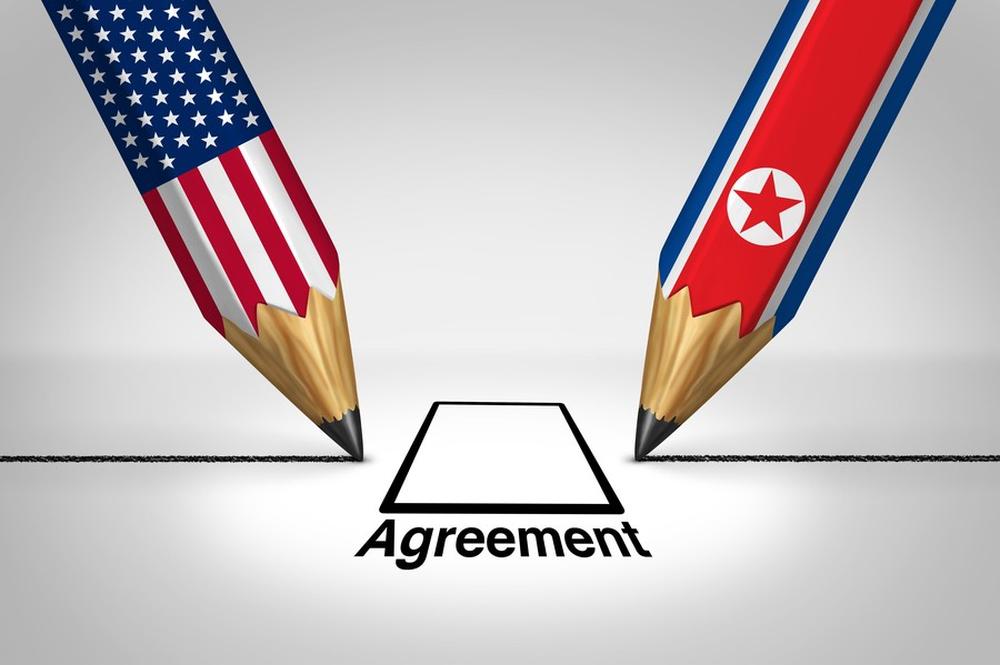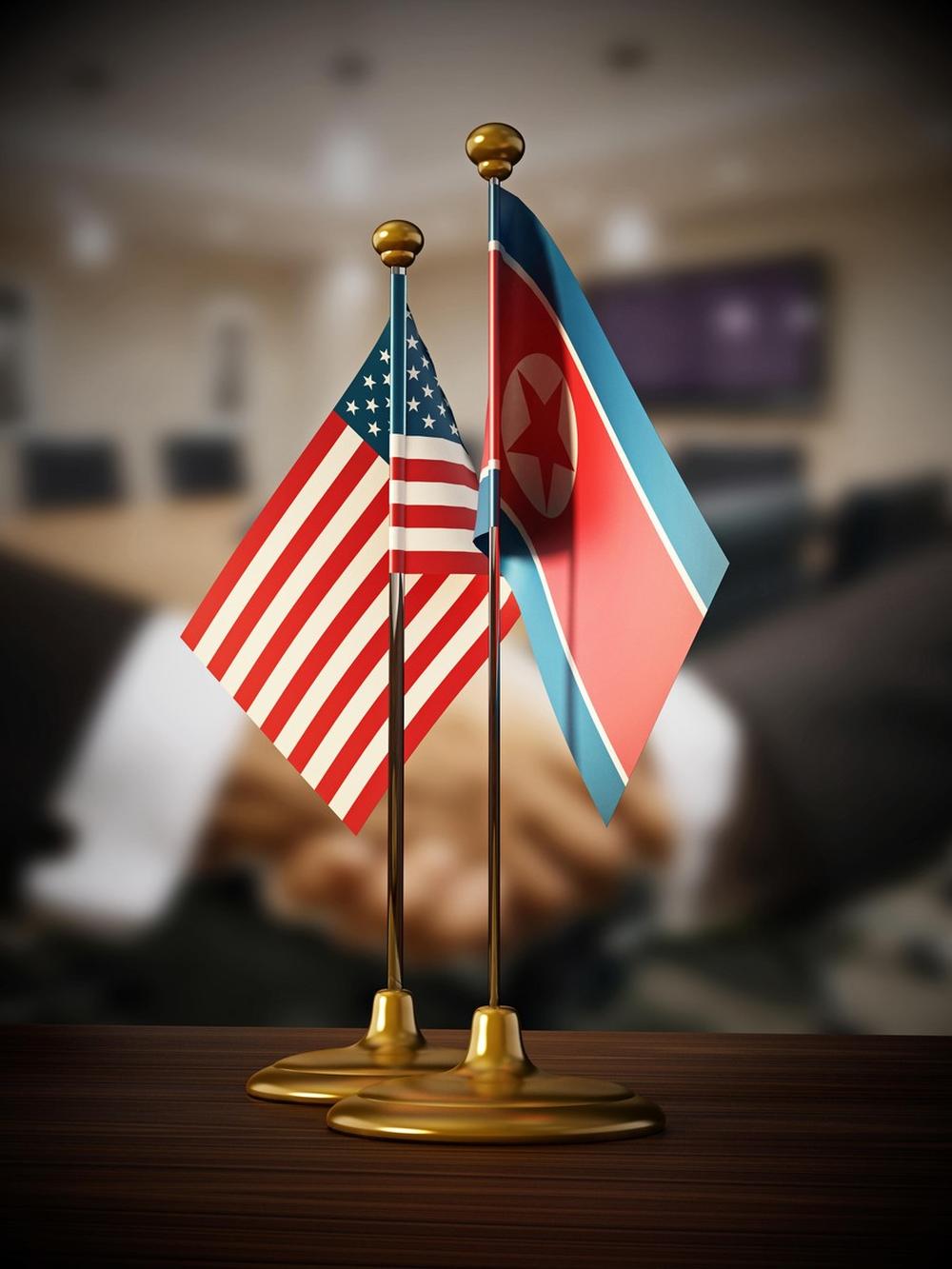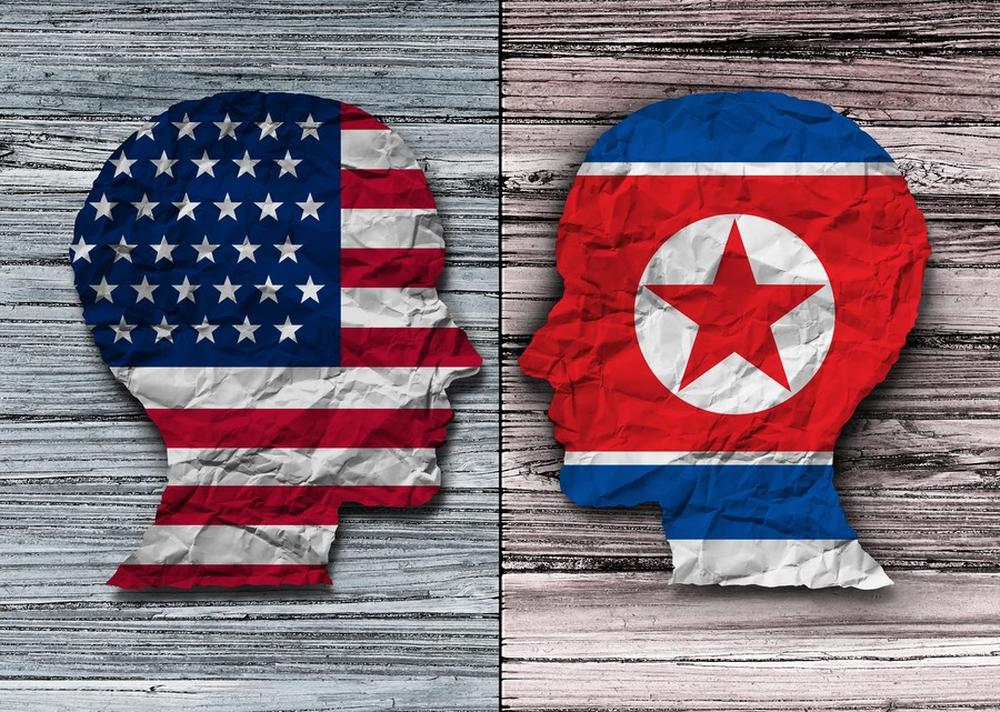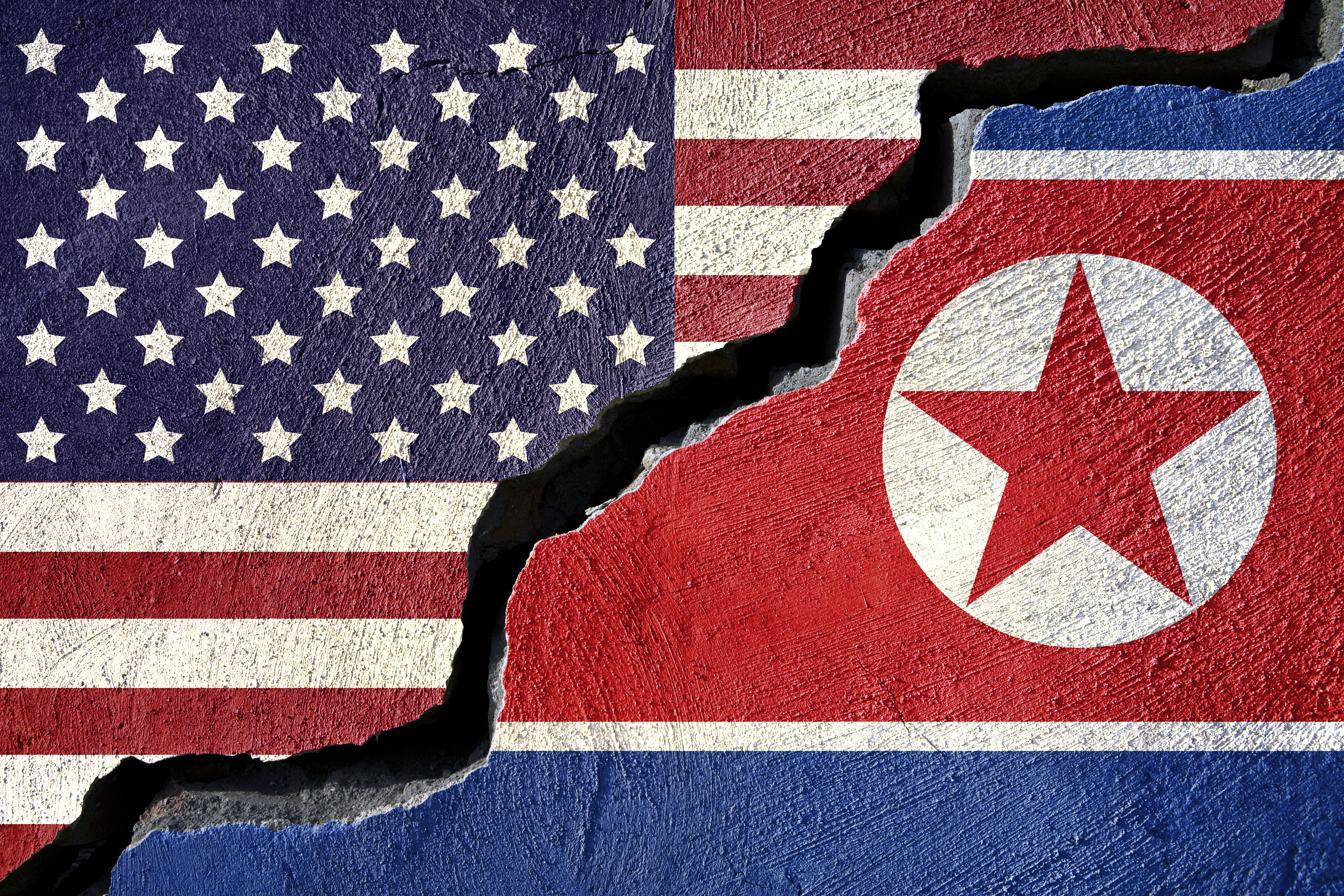- #North Korea
- #Nuclear & Missile Issues
- #Sanctions & Human Rights
- #US Foreign Policy

► To thwart North Korea from resuming nuclear/missile tests and acquiring more fissile material, the U.S. urgently needs to close an "interim nuclear agreement" between the two nations.
► In order to expedite dialogue, President Biden should send 'President Kim Jong-un' a personal letter requesting working-level negotiations towards the four goals iterated in the 2018 Singapore Joint Statement and proposing the provision of humanitarian assistance.
►North Korea's 'strategic patience' , restraining of nuclear/missile provocations, and struggles with food and public health offer us a rare opportunity to begin re-engagement.
Possibility of a US-DPRK “Interim Agreement” as the Initial Phase of Denuclearization
Assuming US-DPRK nuclear negotiations resume, what agreement could the two sides reach? Most experts remain skeptical that such a scenario is even a possibility. However, the author believes that if North Korea and the Biden administration are prepared to exchange early and low-level denuclearization measures for corresponding ones of tantamount value, a short-term “interim deal” will be possible.
For example, the “interim agreement” could include certain denuclearization steps that North Korea has already taken and has offered to take. These steps include a moratorium on the nuclear and medium-to-long range missile tests, shutdown of rocket engine sites as well as nuclear test sites, and dismantlement of the Yongbyon nuclear facility, among others. The U.S. could additionally ask for the shutdown and verification of North Korea’s nuclear fissile material production sites and its medium-to-long range missile facilities, if it is ready to offer more corresponding measures. In exchange, the United States could offer the following: implementation of the Singapore Joint Statement, promise not to pursue hostile policies, a US-DPRK summit meeting, suspension of large-scale ROK-US joint military exercises, step towards normalization of relations, provision of humanitarian assistances and (conditional) partial sanctions relief (adjusting the cap on oil import and allowing certain types of civilian trade). The kinds and levels of US corresponding compensatory measures to North Korea shall be further adjusted depending on the latter’s kinds and levels of denuclearization measures.
Then why is an “interim agreement” between the United States and North Korea possible? The author would like to pay attention to the idea of an “interim agreement” as argued by Antony Blinken, now U.S. Secretary of State, in two of his New York Times articles: “To Win a Nobel, Trump Should Look to the Iran Deal” (May 2, 2018) and “The Best Model for a Nuclear Deal with North Korea? Iran” (June 11, 2018). In both articles, which were published just prior to the US-DPRK Singapore summit in 2018, he argued that the United States should apply the ‘two-staged’ Iran nuclear agreement model towards North Korea. First, there will be an “interim agreement” with North Korea, suspending its nuclear activities in exchange for limited sanctions by the U.S. The second phase would then involve a “comprehensive main agreement” that looks to exchange complete denuclearization for a peace treaty. Following the Biden administration’s North Korea policy review and the May 21 ROK-US summit, this ‘phased approach’ to US-DPRK negotiations appears to the official U.S. position.
North Korea has been known to demand a phased approach. In fact, at the 2019 US-DPRK summit meeting in Hanoi, North Korea had offered to dismantle its Yongbyon nuclear facilities. However, the negotiations ended in a “no deal” when the Trump administration rejected this “small deal” in favor of a “big deal.” The two sides now appear to agree that a phased approach to denuclearization is the most realistic option available.
Opportunities for Resumption of US-DPRK Negotiations
After the “no deal” in 2019, North Korea has hinted at the possibility of retaliation and provocations against the United States. Since the latter half of 2020, most North Korea observers predicted that North Korea would indeed carry out nuclear/missile test provocations to press and test the incoming Biden administration. So far, North Korean nuclear/missile test has not taken place, which gives a ray of hope for the future of US-DPRK dialogue. The author interprets this suspension or postponement of provocation by the North as its version of “strategic patience.” If so, why would North Korea be “strategically patient”?
First, North Korea has already demonstrated its deterrence capabilities in 2017 when it successfully tested a hydrogen bomb and medium-to-long range missiles. Unlike in the past, North Korea no longer needs to demonstrate its aggressiveness and deterrence capabilities in order either to deter a presumed U.S. preemptive strike or to attract the attention of an incoming U.S. administration. Second, North Korea is experiencing a severe food and health crisis as Kim Jong-un recently admitted that North Korea is in “the worst economic situation ever caused by the brutal sanctions regime and natural disasters.” Unless North Korea has a clear political and strategic objective, it will refrain from actions that could lead to additional sanctions. Third, North Korea remains heavily dependent on China diplomatically and economically. Therefore North Korea might have chosen to refrain from nuclear and missile tests in order not to provoke China. With China scheduled to host the Beijing Winter Olympics in February 2022, it most likely prefers the region to be free of North Korean nuclear crisis or heightened military tensions. Lastly, North Korea has closed off its borders to deal the COVID-19 pandemic, which makes it impossible to engage in face-to-face dialogue with the U.S. At this moment, North Korea does not need to attract American attention or to expedite negotiations. For these reasons, North Korean version of “strategic patience” will provide the United States with an opportunity to seek dialogue with North Korea.
The results of the May Moon-Biden summit will also have a positive impact on the possibility of US-DPRK dialogue. First, in an act of consideration for North Korea, the United States did not use such expressions as “denuclearization of North Korea” and “CVID (complete, verifiable and irreversible dismantlement).” It also referred to North Korea by its formal title as “the DPRK.” Second, the Biden administration announced its support for a “phased” approach towards denuclearization, humanitarian assistance to the North, and the Singapore Joint Statement, which North Korea also likes. Had the Biden administration refused to succeed the Singapore Joint Statement, it would have eliminated any possibility of US-DPRK dialogue for a while. Third, the United States supported inter-Korean dialogue and the Moon administration’s efforts to engage and cooperate with the North. Similar to 2018, inter-Korean dialogue and engagement can now serve as a catalyst to accelerate US-DPRK negotiations.
This does not mean that US-DPRK dialogue will resume anytime soon. The United States has announced that “the ball is on North Korea’s court.” However, North Korea thinks differently. It believes that its initial moves toward denuclearization (explosion of the Punggye-ri nuclear test site, shutdown of rocket engine test sites, and suspension of nuclear and medium-to-long range missile tests, etc.) were not reciprocated properly yet by the United States. Moreover, according to North Korea, its demands to the United States have not been answered. These include calls for the United States to abandon its hostile policy towards the North, to change the its calculus with regard to nuclear negotiations, and to make the initial move. Therefore, North Korea will return likely to the dialogue only when it is confident of the changes of United States’ positions to the North and progress in nuclear negotiations.
Initial Measures to Facilitate US-DPRK Negotiations
The following is a set of policy suggestions to expediate US-DPRK nuclear negotiations.
First, President Biden should send a personal letter to “President Kim Jong-un.” Included in this letter will be support for the Singapore Joint Statement and confirmation of its four objectives, reconfirmation of North Korea’s moratorium on nuclear and missile tests and other military provocations, holding of working-level nuclear negotiations, and provision of humanitarian assistance to the North Korea. However, judging by the general mood in the United States, it appears that such a letter is unlikely for now. The author believes, however, that if one letter could prevent North Korean nuclear and missile provocations and lead to US-DPRK nuclear negotiations and hopefully a nuclear agreement, it is worth the try. This is especially the case since North Korea remains a one-man ruling authoritarian regime, which makes leader-to-leader communications necessary to make a breakthrough. If we look at the Iran nuclear agreement, President Obama went against the American traditional diplomatic taboo of not talking to leaders of rogue states by exchanging letters and phone calls with Iranian religious and political leaders, which eventually lead to the conclusion of the nuclear deal.
Second, the United States should consider providing humanitarian assistance to address North Korea’s humanitarian crises involving food, public health, and the pandemic. Recently there were calls for urgent humanitarian assistance to the North by UN organization and NGOs. This could create an environment conducive to the resumption of US-DPRK nuclear negotiations. Moreover, given that public health and pandemic issues are also regional in nature, we need to invite and persuade North Korea to join “Northeast Asia Cooperation Initiative for Infectious Disease Control and Public Health,” proposed by South Korea.” Then we could explore and find a regional solution to North Korean Covid19 problem.
Today’s US-DPRK relations remain in limbo somewhere between dialogue and active military hostility. This does not in any way imply that North Korea has suspended its nuclear activities. During the 8th Congress of the Workers’ Party of Korea in January of this year, North Korea announced its return to Byungjin policy and declared “to enhancing its nuclear preemptive and retaliatory capabilities” and “to consolidate its status as a nuclear weapon state.” North Korea experts estimate that North Korea already procured enough nuclear fissile materials to produce around 50 nuclear warheads, and produces fissile material for 5 nuclear weapons every year. As the number of nuclear weapons increases, the possibilities of nuclear weapons being used, by design, miscalculation and accidents, grow. Nuclear materials and technology could also be transferred or stolen, and fall into the wrong hands. If North Korea’s possession of nuclear weapons is prolonged into another decade, it could be called as a ‘de -facto nuclear weapon state’ like India or Pakistan. What can be done to prevent these disastrous scenarios from happening? The first step would be to quickly resume US-DPRK nuclear negotiations and conclude an “interim agreement” with the goal of shutting down North Korea’s nuclear activities.
Dr. Jun Bong-Geun is a professor at the Department of Security and Unification Studies at the Institute of Foreign Affairs and National Security (IFANS) in the Korean National Diplomatic Academy. Jun has held several governmental and non-governmental positions: Acting President of IFANS (2019 – 2020), Policy Advisor to the Minister of Unification (2003 – 2004), Secretary to the President for international security affairs at the Presidential Office (1993-1997), and professional staffer at KEDO New York headquarters (1997-2001). Jun was also visiting fellow at the Asia Foundation Center for U.S-Korea Policy in Washington, D.C. (2010) and Geneva Center for Security Studies in Geneva (2015). Jun’s research area covers the North Korean nuclear dilemma, inter-Korean relations, nonproliferation, nuclear security, and nuclear energy policies. Dr. Jun graduated with a BA and MA in International Relations from Seoul National University and received his Ph.D. in Political Science from the University of Oregon.


